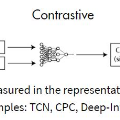The discriminability of feature representation is the key to open-set face recognition. Previous methods rely on the learnable weights of the classification layer that represent the identities. However, the evaluation process learns no identity representation and drops the classifier from training. This inconsistency could confuse the feature encoder in understanding the evaluation goal and hinder the effect of identity-based methods. To alleviate the above problem, we propose a novel approach namely Contrastive Regularization for Face recognition (CoReFace) to apply image-level regularization in feature representation learning. Specifically, we employ sample-guided contrastive learning to regularize the training with the image-image relationship directly, which is consistent with the evaluation process. To integrate contrastive learning into face recognition, we augment embeddings instead of images to avoid the image quality degradation. Then, we propose a novel contrastive loss for the representation distribution by incorporating an adaptive margin and a supervised contrastive mask to generate steady loss values and avoid the collision with the classification supervision signal. Finally, we discover and solve the semantically repetitive signal problem in contrastive learning by exploring new pair coupling protocols. Extensive experiments demonstrate the efficacy and efficiency of our CoReFace which is highly competitive with the state-of-the-art approaches.
翻译:暂无翻译



